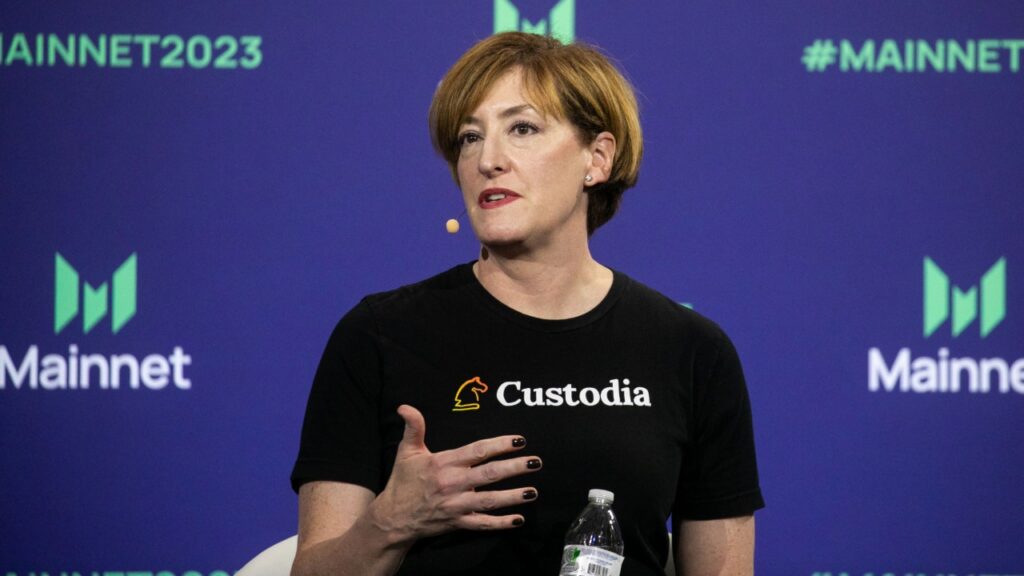In the ever-evolving landscape of cryptocurrency, regulatory decisions can significantly impact the trajectory of financial institutions seeking to integrate with mainstream financial systems. Custodia Bank, a pioneer in the crypto banking arena founded by Caitlin Long, has faced a formidable challenge in its quest to secure a Federal Reserve master account. This coveted access would enable Custodia Bank to directly participate in the Federal Reserve’s payment systems, eliminating the need for intermediary banks. However, the path to attaining this status has been fraught with legal hurdles and setbacks.
Custodia Bank’s Battle for Federal Reserve Access: A Legal Odyssey
Understanding the Federal Reserve Master Account Dispute
In 2020, Custodia Bank took a strategic step by applying for a master account with the Federal Reserve Bank of Kansas City (FRBKC). This account is crucial for crypto-focused financial institutions aiming to streamline operations and directly engage with the Federal Reserve’s payment network. However, in 2023, the FRBKC rejected Custodia’s application, citing concerns about its banking practices. This denial came after Custodia had already initiated a lawsuit against the Federal Reserve in 2022, accusing it of unlawfully delaying the process.
In March 2024, Custodia escalated the matter by challenging the Federal Reserve’s decision in court. The bank argued that the central bank lacked the authority to deny its application and suggested possible collusion between the Federal Reserve Board of Governors and the Kansas City Fed in orchestrating the rejection. However, Judge Scott Skavdahl of the US District Court for the District of Wyoming ruled against Custodia, affirming that federal law does not obligate the Federal Reserve to grant a master account to every applicant, thus endorsing the Fed’s discretionary powers in such matters.
The 10th Circuit Court Upholds the Ruling
Seeking to overturn the district court’s decision, Custodia filed an appeal with the 10th Circuit Court of Appeals in April 2024. After nineteen months of deliberation, the appellate court upheld the district court’s decision, reiterating the Federal Reserve’s discretion in granting master accounts.
The appellate ruling stated: “We agree with the district court that the plain language of the relevant statutes can only reasonably be read to give the Federal Reserve Banks discretion in granting or denying requests for master accounts. Custodia Bank is not statutorily entitled to a master account.”
Future Prospects for Custodia Bank
Custodia Bank’s battle is far from over. In response to the appellate court’s decision, Custodia has hinted at the possibility of petitioning for a rehearing. This consideration is fueled by a strong dissent from one of the appeals court judges, which raised significant constitutional questions about the Federal Reserve’s actions.
The bank stated: “While we were hoping for a win at the Tenth Circuit today, we received the next best thing — a strong dissent. It raised serious Constitutional questions about the Federal Reserve and was written by a judge sitting by designation on the panel of a similar case in the Ninth Circuit. Including Judge Bacharach’s opinion in the Fourth Corner case, there’s now a split on this question among Tenth Circuit judges. Custodia has an option to petition for a rehearing by the Tenth Circuit, and we are actively considering that.”
As of now, the total cryptocurrency market capitalization registers at $3.68 trillion, reflecting a 2.65% increase.
The Editorial Commitment to Quality Content
Our editorial process ensures that our content is thoroughly researched, accurate, and unbiased. We adhere to high sourcing standards, and each article is meticulously reviewed by our team of technology experts and editors to ensure it delivers integrity, relevance, and value to our readers.
What does a Federal Reserve master account enable for banks like Custodia?
A Federal Reserve master account allows financial institutions like Custodia Bank to access the Federal Reserve’s payment network directly. This access facilitates streamlined operations by eliminating reliance on intermediary banks, thereby reducing costs and increasing efficiency in transaction processing.
Why was Custodia Bank’s application for a master account denied?
The Federal Reserve Bank of Kansas City denied Custodia Bank’s application due to perceived concerns about the bank’s operating practices. The decision was aligned with the Federal Reserve’s discretionary authority to evaluate and grant master account applications based on various compliance and risk considerations.
Prospects and challenges for crypto banks in gaining Federal Reserve approval
Crypto banks face unique regulatory challenges in securing Federal Reserve approval. While they bring innovation and new capabilities to the financial sector, they must navigate complex regulatory landscapes and address concerns about security, compliance, and risk management. Achieving a master account status requires a strategic approach to satisfy federal guidelines and demonstrate financial integrity.
Is appealing court decisions beneficial for financial institutions?
Appealing court decisions can be beneficial for financial institutions as it provides an opportunity to challenge unfavorable rulings and potentially achieve a different outcome. However, it also involves additional legal costs and time. A careful analysis of the potential benefits and drawbacks is essential before proceeding with an appeal.

